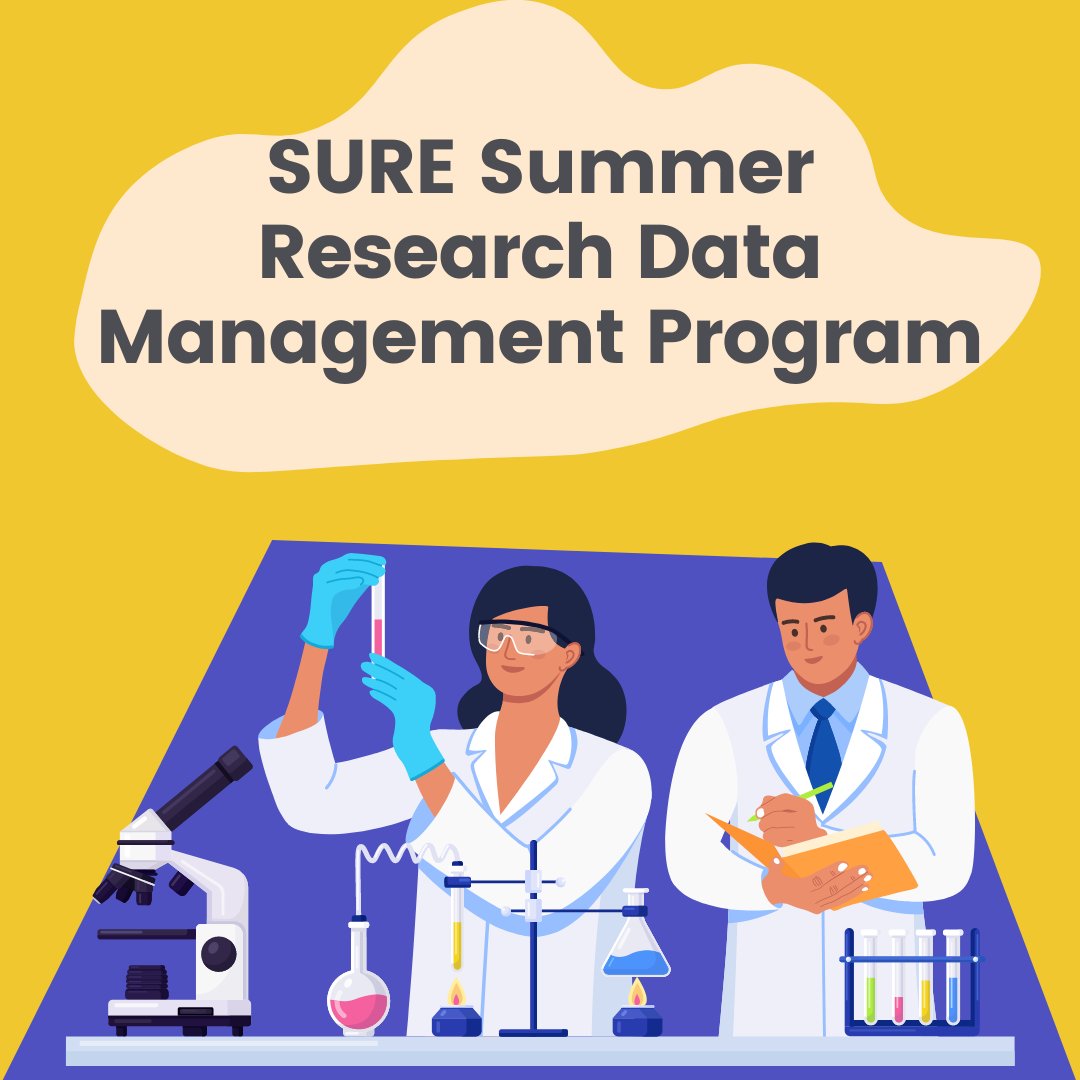
USask undergraduate students explore research data management
USask undergraduate students learn about research data management and build research data management plans for their summer research projects
By Merle MassieIt’s one thing to dive into research. It’s quite another to meticulously document what you did – or what you’re going to do – along the way, so that someone else can find, understand, replicate, and even re-use the research data.
Welcome to the world of research data management (RDM). If you’re a researcher, you’ve heard horror stories of research data mismanagement. Days, months, even years of data lost due to data storage issues, floods, or computer failure. Data becoming unusable due to changing technology. Data simply being unreadable because the analysis was conducted by someone who long since left the research group, and their notes are gone.
Such stories bring about cold sweats and nightmares.
In Canada, the Tri-Agencies have developed a new RDM policy which will eventually apply to all future grant applications. The goal, reports USask Library lead Kevin Read, is to “improve the efficiency, organization and transparency of the data collection, storage, preservation, and analysis process.”
USask chose to step ahead of the game in summer 2022 and train incoming undergraduate students about good practices in RDM. A total of 53 students, working with 35 faculty members across campus, participated in the Student Undergraduate Research Experience (SURE) summer RDM program. Of those students, 34 completed a Data Management Plan for their summer research in collaboration with their faculty supervisors.
It was a unique opportunity, Read explained, “to train students [who are] in the early stages of their research careers, help them and their supervisors learn about and adopt RDM best practices, and comply with the new Tri-Agency policy.”
The program opened with two sessions on RDM, and a workshop on using the Data Management Plan Assistant, an online program which helps researchers build their data management plan (DMP) in a systematic and guided way. USask library faculty Kevin Read and Sarah Rutley provided support and feedback for students and faculty throughout the process.
Students worked with their supervisors to build their DMP, which guided their research throughout the summer. The summer program asked students to write a short reflection on RDM at the end of their summer project, to think about how building a DMP contributed to their summer work. Students who finished all aspects of the program received co-curricular credit.
Student response was overwhelmingly positive. Faculty also reported high program support.
Dr. Jane Alcorn (PhD) noted that the SURE RDM was “An excellent program. This is the appropriate time in a student’s training lifecycle to make them aware of the requirements for data management. You kept things simple enough yet rigorous for the students.” Dr. Ellen Wasan (PhD) added, “As Tri-Council policies will require formal DMPs, this is an excellent idea to have this in their training early on.”
Students might have been the primary audience, but faculty supervisors also benefited. Faculty reported increased familiarity with RDM and in some cases, used the opportunity to build DMPs for their labs and research groups. Dr. Michel Gravel (PhD) reported, “In the immediate future, it will probably help me more than it will the student.”
Others requested additional training and potentially expanding the program to include graduate students. Dr. Wasan reported, “We are working on applying the principles of the DMP and there are some challenges around file structures, file naming, saving data in non-proprietary software and generally keeping up with timely uploading of data into storage. Could we have a follow-up session with graduate students? They have piles of records.”
With incoming expanded RDM policies for Tri-Agency-funded research, Read offers this perspective: “USask must continue to invest in resources to provide support and training for RDM to ensure our researchers are prepared and able to comply with emerging funder policies.” That support and training is welcome, timely, needed, and, as the summer 2022 SURE-Library model showed, effective at upskilling students and faculty on campus.

